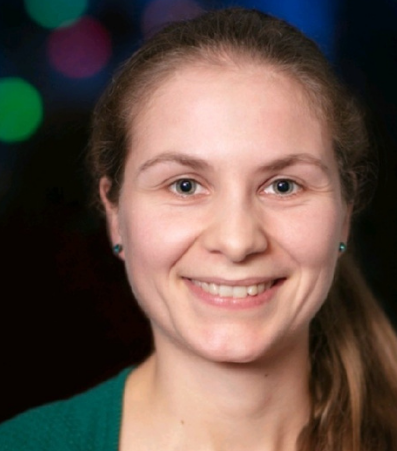Vrije Universiteit Amsterdam offers a wide range of English-taught courses that are open to exchange students. Please familiarize yourself with our academic structure and the prerequisites before delving into the course offer.
Courses for exchange students
Academic structure and environment
-
Semesters and periods
At Vrije Universiteit Amsterdam, the academic year is divided into 2 semesters. In turn, each semester is divided into 3 periods. Below you can find an overview of the academic system as well as a typical workload for an (exchange) student at the university:
1st or Fall semester:
Period Months Duration No. courses Credits (ECTS) Period 1 Sept/Oct 8 weeks 2 courses 12 ECTS Period 2 Nov/Dec 8 weeks 2 courses 12 ECTS Period 3 January 4 weeks 1 course 6 ECTS 2nd or Spring semester:
Period Months Duration No. courses Credits (ECTS) Period 4 Feb/March 8 weeks 2 courses 12 ECTS Period 5 April/May 8 weeks 2 courses 12 ECTS Period 6 June 4 weeks 1 course 6 ECTS Please take note of the following:
- You must be registered for at least 24 ECTS per semester. The maximum is 36 ECTS per semester.
- A standard workload is 30 ECTS per semester, divided over the periods (see above). You may also take an additional course in any period, as long as you do not exceed the maximum of 36 ECTS.
- Note that you cannot take more than 3 courses or 18 ECTS in periods 1, 2, 4 or 5. Also, you cannot take more than 2 courses or 12 ECTS in periods 3 or 6.
- If you are a Fall semester student, you have to take courses in both periods 1 and 2. If you are a Spring semester student, you have to take courses in both periods 4 and 5.
- You are allowed to skip period 3 (in Fall semester) or period 6 (in Spring semester), as long as you meet the minimum of being registered for at least 24 ECTS per semester.
- In the exchange study guide you can see in which period a course takes place. Note that some courses span several periods (for example P1+2 or P4+5).
- The end of each period is followed by an examination week.
-
Academic calendar
Academic year 2025/26
Fall 2025 (Semester 1) Course Registration Deadline Deadline to Drop/Remove Courses Instruction Period (including exams) Period 1 8 September 8 September 1 September - 24 October 2025 Period 2 29 September 3 November 27 October - 19 December 2025 Period 3 (Optional) 8 December 12 January 5 January - 30 January 2025 Spring 2026 (Semester 2) Course Registration Deadline Deadline to Drop/Remove Courses Instruction Period (including exams) Period 4 12 January 9 February 2 February - 27 March 2026 Period 5 2 March 6 April 30 March - 29 May 2026 Period 6 (optional) 4 May 9 June 1 June - 26 June 2026 For details about our semester dates, please consult the academic calendar.
-
Timeline for choosing your courses
Orientation
Already while you are deciding whether VU Amsterdam is the right place for you for going on exchange, it is important to familiarize yourself with our course offer. You can either choose a minor programme (Fall Semester only) or courses from the exchange study guide. The course offer can be found further below on this web page.
Please make sure to also select a few back-up courses for each period:
- We (the host university) or your home university might not approve a course;
- The specific timetable for each semester is only available 2 months before the semester starts, so there might be scheduling conflicts between your preferred courses.
Each year in April, the minors and courses available for the upcoming academic year are published. A good number of courses is available every year, but there are also always some changes.
June (Fall semester) or November (Spring semester): we will ask you to submit courses for pre-approval.
July (Fall semester) or December (Spring semester): course registration normally starts in the second week of July and December.
-
Instruction style
Study hours at VU Amsterdam are a combination of hours spent in class with the instructor and hours spent out of class working independently. In general, a VU student has about 10 hours per week of strictly student/professor contact hours. The remaining hours are spent outside of the classroom and can include time spent working on assignments with other students from your course, known as work groups, or time spent working individually on assignments, known as self-study.
The Dutch understanding of self-study is a fixed number of hours spent working on specific assignments. Although the number of hours spent by each student may vary, all students are expected to complete a minimum number of hours of self-study for each course. This varies per course, but you should be prepared to spend more time studying independently than you may be used to. Self-study hours are weighted the same as in-class hours and are included in the calculation that 1 ECTS equals 28 of weekly contact hours (see explanation about ECTS credits further below).
Studying at VU Amsterdam: What is expected of you?
- Be an active learner and critical thinker: ask questions, participate, and share your opinion
- Be present and on time: many teachers have a 100% attendance policy; it is wise to check this with your professor beforehand
- Be prepared: fewer lectures, more self-study
- Be accountable: you are responsible for knowing when your assignments are due and when the exams take place
- Be transparent: always mention your source of information; plagiarism may result in automatic failure of the course
Studying at VU Amsterdam: What can you expect?
- High level of classroom interaction
- Independence and active learning
- Relative lack of competition
- Direct feedback
- Social equality
- No grade inflation or scaling
-
Dutch grading system
Dutch grades range from 1 (lowest) to 10 (highest).
The highest grade - a 10 - is very rarely awarded. An 8 is considered a high mark and a 7 is more common. Grades from 1 to 3 are also quite rare.
Grades of 6 and higher are passing grades. A final mark between 5 and 6 will be rounded to the nearest whole number: final marks below 5.5 are rounded down to a 5.0; final marks of 5.5 and higher are rounded up to a passing grade of 6.0.
All final marks will be expressed in whole or half marks.
Dutch grade Explanation 10 Outstanding 9 Excellent 8 Very good 7 Good 6 Pass 1 - 5 Fail -
Credits (ECTS)
VU Amsterdam uses the European Credit Transfer System (ECTS) which is based on the workload students should have in order to achieve expected learning outcomes. ECTS is based on the principle that 30 ECTS credits measure the workload of a full-time student during one semester (and 60 ECTS for a full academic year). In addition, each ECTS credit is equivalent to 28 study hours (which includes both classroom hours as well as self-study). Most courses are 6 ECTS credits.
As an exchange student, you must follow a minimum of 24 ECTS credits per semester (or 48 ECTS for the whole academic year).
Courses and minors open to exchange students
-
Entry requirements for bachelor's and master's courses
Bachelor's (or undergraduate) courses
- You are allowed to take courses across faculties, as long as you meet the entry requirements for each course. Exceptions are the courses from the department of Psychology: these courses are only available to full-time students in psychology.
- Please carefully check the entry requirements and recommended background knowledge on each course page.
- Levels 100, 200 and 300 usually (but not always) mean these are first-year, second-year and third-year bachelor's courses, respectively. You can find the level of each course in the course descriptions in the exchange study guide.
- Level 300 normally means that you need to be a full-time student in this field of study. Exceptions are the level 300 courses that are part of minor programmes that are available to all students, regardless of your academic background.
- You are only allowed to take courses that are listed in the exchange study guide (see below).
Master's (or graduate) courses
- To be able to take master's courses, you have to submit your bachelor’s diploma. You can find more information on our page about nomination and application.
- You can only choose master's courses that are related to your own field of study.
- Please carefully check the entry requirements and recommended background knowledge on each course page.
- Levels 400, 500 and 600 are all master's courses. You can find the level of each course in the course descriptions in the exchange study guide.
- You are only allowed to take courses that are listed in the exchange study guide (see below).
-
What are minor programmes?
During the Fall semester, you may choose a so-called minor, which is a set combination of advanced (usually level 300) bachelor's courses in a specific field. Minor programmes usually consist of 5 courses worth a total of 30 ECTS and are only offered during the Fall semester.
If you wish to return home before Christmas, then you are free to skip the last course in period 3. Note that there are a few minors where one course spans several periods, including period 3. In these cases, you cannot skip the course in period 3.
All other courses in the minor are required, including those spanning several periods. Sometimes courses offered as part of a minor are also available to be taken as individual courses. If this is the case, the course will also be listed in the exchange study guide as an individual course.
There are certain advantages to choosing a minor:
- You gain specialized knowledge in a chosen field of study
- You can immediately finalize their study plan because courses within a minor do not overlap
- Minors demonstrate a study specialization which you can listed on your CV
- You will follow all courses with the same group of students
-
Minors open to all third-year bachelor’s and to master’s students (Fall 2025)
- Anthropology
- Buddhism, Yoga and Spirituality
- Business Administration
- Communication Science
- Data Science
- Decision Making in Business and Society
- Development and Global Challenges
- Digital Humanities and Social Analytics
- E-business and Online Commerce
- Economics
- English
- Entrepreneurship
- Foreign Language Learning
- Gender and Diversity
- Global Health
- History
- Law and Global Justice
- Managing Digital Innovation
- Peace and Conflict Studies
- Peace Theology and Anabaptist-Mennonite Traditions
- Philosophy
- Political Science
- Psychology and the Brain
- Religious Dimensions of Global Challenges
- Risk Management for Financial Institutions
- Spirituality, Yoga and Sustainability
- Sustainability: Global Challenges, Interdisciplinary Solutions
- Sustainability: Management and Innovation
- Technology, Law & Ethics
- Visual Evidence
-
Minors with specific entry requirements (Fall 2025)
Please make sure to consult the tab "Admissions" on the minor page to see whether you meet the entry requirements.
- Applied Econometrics: A Big Data Experience for All
- Brain and Mind
- Earth Surface - Track Earth Sciences
- Earth Surface - Track Earth, Economics & Sustainability
- European Urban and Cultural History
- Evolutionary Biology and Ecology
- Genes, Cognition and Behaviour
- Geology and Geochemistry
- Neurosciences
- Pharmaceutical Sciences
Minors Faculty of Medicine VU
VU partner exchange students who wish to apply need to have completed at least 90 ECTS in a relevant programme, for example medicine, biomedicine, psychobiology, technical medicine, medical biology, liberal arts & sciences or biopharmaceutical sciences. Please mind that some tracks are only open to medical students, and acceptance also depends on the availability of sufficient spots. More information: Minor within electives - International Minors Medicine -
Create your own schedule of individual courses (exchange study guide 2025/26)
As an exchange student, you have to select courses from our exchange study guide. This is a subset of the general study guide. Selecting courses that are not listed in the exchange study guide is not possible. During the first (Fall) semester, you may also choose a minor programme (see above). Below, we will explain both options in more detail.
For an overview of available courses, please consult our exchange study guide:
Online course guide for exchange students 2025/26
The exchange study guide for the following academic year is made available around April. Note that the exchange study guide is subject to change. Courses may be added or removed throughout the academic year.
Please taken note of the following information:
Do not use the search bar
When you consult the exchange study guide, please make sure to navigate via the headings/lists in the exchange study guide itself. Please do not use the search bar, as this will also give you results from the general study guide, and may lead to courses that are not open to exchange students.Explaining the academic calendar
At Vrije Universiteit Amsterdam, the academic year is divided into 2 semesters. Each semester is divided into 3 periods. Semester 1 consists of period 1, period 2 and period 3; semester 2 consists of period 4, period 5 and period 6. Exams take place in the last week of the respective period.A normal course load is to take 2 courses in the first 2 periods of each semester, and 1 in the last period of each semester. For more information about semesters and periods, please take a look at the top of this web page.
-
Exceptions: Dutch-taught courses / PPE courses
Courses taught in Dutch
If you wish to take Dutch-taught courses, you need to be sufficiently proficient in the Dutch language (C1 level). Attaining such a level of proficiency usually takes several years of study. If you wish to take courses taught in Dutch, please contact us at incoming@vu.nl.Courses for students from PPE partner universities
If you are a PPE student from one of our PPE partners, you are allowed to also choose some courses from our PPE Bachelor's programme. Please note that your choice is limited to the second-year courses within the Track Philosophy 2nd Year, the Track Political Science 2nd Year & the Track Economics 2nd Year. Here you can find the overview of second-year PPE courses 2025/26. -
Dutch language and culture courses
Basic Dutch on Campus
Our Dutch language department NT2 offers a special course specifically for international students who wish to acquire basic Dutch language skills (A1 level).
- The course may count towards the required 24 ECTS.
- Basic Dutch on Campus costs € 150.
Basic Dutch on Campus is scheduled in the evening so that it will not overlap with your other courses. Note that this course spans two periods; it is not possible to choose just one period or the other. You will receive a separate timetable directly from the professor and a certificate (worth 6 ECTS) upon completion.
Here you can find a syllabus for Basic Dutch on Campus. You will receive an updated syllabus directly from the professor before the start of the course.
For additional information, please check the Basic Dutch on Campus page. You can find NT2’s contact information at the bottom of that page if you have any further questions. There you can also find other alternatives for students who speak a language related to Dutch, where they can do a fast track course to reach A2 over the course of two periods.
Imagining the Dutch: Themes in Dutch History
The course Imagining the Dutch will familiarize students with core aspects of Dutch history and the way the Netherlands is imagined. Students will learn how to connect Dutch history with a number of present-day public debates on issues such as national identity, tolerance, environment, colonialism, World War II, democracy, and multiculturalism. There is no language component for Imagining the Dutch.
This course is offered twice a year, once during the Fall semester and once during the Spring semester. In the Fall semester, Imagining the Dutch takes place during Period 1. In the Spring semester, this course spans two periods, periods 4 and 5. This means that during the Spring semester, this course is spread out over a longer period of time, but you will meet fewer times per week. It is not possible to choose just one period or the other.
More information about Imagining the Dutch can be found in the course description in the exchange study guide.
-
A Broader Mind
A Broader Mind is unique in that it’s developed by students, for students — allowing you to engage with the topics that matter most to you. Together you will explore the big issues that shape our society while learning how to facilitate discussions among people with diverse beliefs, backgrounds, and perspectives. This course challenges you to think beyond conventional boundaries and gain a fresh, global perspective on complex societal challenges. Through collaborative learning, you’ll learn how to turn theory into action, transforming knowledge into meaningful change together with fellow students who are passionate about making a difference. Our student ambassador from Japan, Sakurako, named A Broader Mind as her favourite course at VU Amsterdam. You can read more about Sakurako’s experience here.
A Broader Mind is made up of two tracks: Track A and Track B, and takes place in periods 4 and 5 during the Spring semester. Note that this course will only take place in the Spring. Each track covers four themes:
- Track A: Success & Failure, Poverty, Human Body, and Rebellion
- Track B: Health & Happiness, Digital World, Viewpoints & Worldview, and Sustainability
You can find more information about A Broader Mind here.
*Please note that A Broader Mind is an extracurricular course and is not offered for credit. You will not receive ECTS for this course. It will appear on your final transcript with a pass/fail grade.


